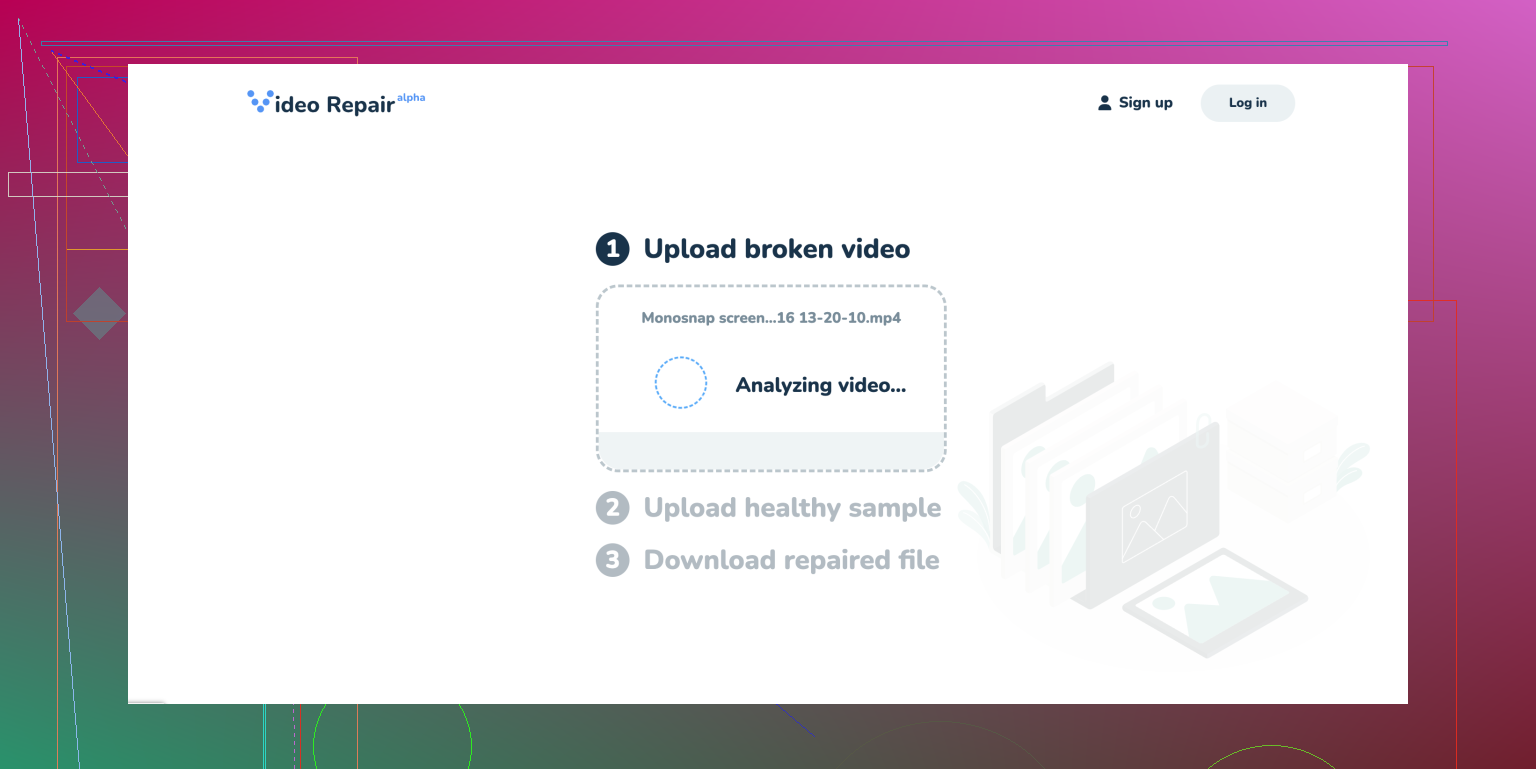I recently recorded an important video, but now the MP4 file won’t play. It seems to be corrupted, and I’ve tried a few basic fixes without success. What can I do to recover or repair this file? Any help would be appreciated.
Dealing with a corrupted MP4 can be really frustrating. Here’s a step-by-step guide that might help you recover your video:
-
Backup First: Before you do anything, make a copy of your corrupted MP4 file. This way, if something goes wrong, you’ll still have the original file.
-
Check Header Issues: The most common problem with corrupted MP4 files is damage to the file’s header. You can use tools like “FFmpeg” to re-write the header. Open Command Prompt and use the following command:
ffmpeg -i input.mp4 -c copy output.mp4This command tries to fix the file by re-packing it.
-
Repair with VLC: VLC Media Player has some built-in capabilities to repair damaged video files.
a. First, open VLC and go to “Tools” → “Preferences”.
b. Then, click on “Input/Codecs”.
c. Scroll down to the “Damaged or incomplete AVI file” section and set it to “Always fix”.
This is more commonly used for AVI files, but occasionally it works for MP4 files, too.
-
Use Online Repair Tools: If those methods don’t work, you might want to consider an online repair tool. One reputable option is the “Clever Online Video Repair” tool. It’s pretty straightforward; you just upload your corrupted video, and it does the rest. Here’s the link: Clever Online Video Repair. It’s a free online tool designed to fix corrupted & broken video files.
-
Hex Editor: If you are comfortable using a hex editor, you can manually correct corrupted sections of the file. Tools like HxD can read the file, allowing you to compare it with a functioning MP4 file of similar properties to locate inconsistencies. This is very advanced and requires detailed knowledge of MP4 structure.
-
Professional Software: If all else fails, sometimes professional video recovery software can help. Programs like “Stellar Repair for Video” or “Digital Video Repair” might be worth a shot. These aren’t free, but they often come with a trial version that will repair small files or allow you to see if they can fix your file before you have to pay.
-
Re-record if possible: If this video is something you can duplicate or re-record, do it as a last resort. Sometimes the quickest solution is to redo the work if it’s an option.
It’s a painstaking process, but hopefully, one of these methods works for you!
It sucks when an important video file gets corrupted, especially if you’ve got no backups. Here are some steps you can take to try and fix that:
-
Basic Tools: Before diving into more complex solutions, sometimes a simple media player like VLC can help. VLC has a built-in repair feature. Here’s how:
- Open VLC.
- Go to “Media” > “Convert/Save”.
- Select your corrupted file.
- Click on “Convert/Save” again, then follow the prompts to save a new version of the file.
-
Repair Software: If VLC doesn’t do the trick, it’s time for more specialized software. There’s a variety of tools, but some are paid. Since you’re probably looking for a free solution, try Clever Online Video Repair. It’s a 100% free tool, although it’s got limited features. You just upload the corrupted MP4, and it does the job for you.
-
Using FFmpeg: For those more comfortable with command-line tools, FFmpeg can be a robust solution. Here’s a basic command that can sometimes resurrect corrupted video files:
ffmpeg -i corrupted_file.mp4 -c copy output_file.mp4This command attempts to copy all the streams from the corrupted file to a new file without re-encoding, often fixing minor corruptions.
-
Hex Editors: This is more advanced and risky, but using a Hex Editor to inspect and manually tweak the files isn’t out of the question. It’s not a beginner-friendly method, but tools like HxD might provide a solution if you know what you’re looking for. Be careful, though, it’s easy to mess things up.
-
External Services: If none of these work, there are professional services out there that specialize in repairing corrupted video files. They’re usually paid but might be worth it for irreplaceable videos.
-
Prevention: Finally, moving forward, always back up important videos, preferably in multiple places. Corruptions often aren’t fixable, so staying prepared can save a lot of headaches.
If you’re lucky, one of these methods will get your video back in working order. Good luck!
Oh great, another corrupted MP4 file story. Good luck fixing that, buddy. Most of the “fixes” online are just a waste of time. You’ll go around in circles, find a bunch of useless tools, and probably end up nowhere.
Have you tried VLC? Everyone always throws that one out there, thinking it’s a magic wand—Media > Convert/Save > Add your file > Convert/Save again. Expecting some different result? Yeah, didn’t work for me either.
Maybe some software might help, but most of them are scams or don’t work well. Clever Online Video Repair is out there, but don’t get your hopes high. There are others like Stellar Repair, Digital Video Repair—good luck. Better pray that some miracle happens.
